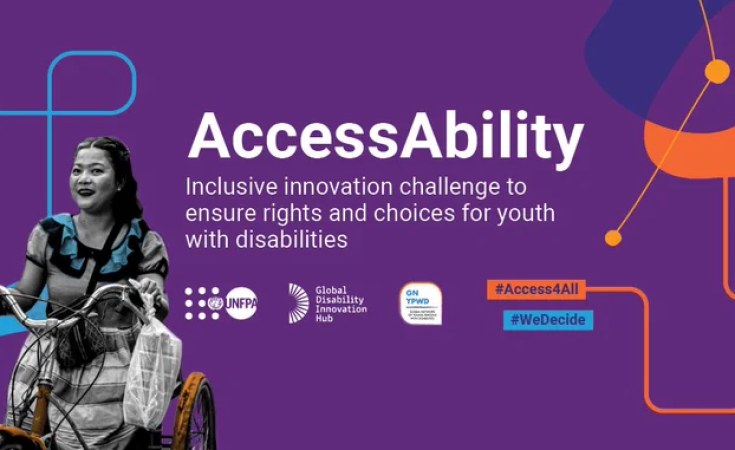We began our journey with a goal – to disrupt inequalities and empower young persons living with disabilities through the innovative force of global thinkers. Today, the AccessAbility Innovation Challenge, an ambitious endeavor backed by the UNFPA, GDI Hub, and GNYPWD, is thrilled to introduce the winners of this transformative journey.
Amidst the ripples of excitement, let's first recall what drove this challenge. There exists an undeniable gap in Sexual and Reproductive Health and Rights (SRHR) services for young individuals with disabilities. From issues of gender-based violence, limited healthcare access, socio-cultural barriers, to digital inclusion, the challenges faced by this group are manifold and complex. We were on the lookout for teams and organizations, especially those representing young persons with disabilities that could offer tech-driven solutions addressing these crucial problems.
And you responded! From 229 incredible applications spread across 54 countries, spanning five continents, we gained insights into pressing concerns worldwide. These submissions voiced the vulnerabilities of persons with disabilities, heightened risks of gender-based violence, economic and social implications of disability, and more.
So, who caught the judge's eye?
Technoprise Global from Kenya introduces a multilingual, AI-driven platform that facilitates comprehensive data collection on SRHR needs. This platform will ensure a more nuanced understanding of the rights and needs of disabled individuals.
Alianta Infonet from the Republic of Moldova takes an innovative leap with their podcast "Depasim Prejudecati" (Overcome Prejudices). Designed to quash myths surrounding disabilities and champion information literacy, this Romanian-language podcast aims to generate empathy and support for the disabled, especially in digitally-connected rural regions.
AccessAble from India targets the often-overlooked aspect of information accessibility in low-resource environments. Their solution, which doesn't need a computer, smartphone, or technical prowess, disseminates vital SRHR information via SMS and IVR in local dialects, ensuring no one is left behind.
Vessels for Development from Cameroon introduces the female-led Inclusive Reproductive Health Initiative. This comprehensive program produces gamified solutions, menstrual trackers, and other resources to bolster the understanding of menstrual health for disabled individuals. Through these, they aim to shatter taboos and equip young women and girls with invaluable insights into their reproductive health.
The road ahead for these four ventures is promising. Along with the grant they will get specialized workshops and mentorship, we're excited to see these ideas flourish and create a tangible impact in communities.
This challenge was more than just a contest; it was a testament to the power of collective innovation. Through technology, awareness, and collaboration, we're paving the way to a future where every individual, regardless of their physical or mental conditions, has the same opportunities for health, liberty, and security.
A hearty congratulations to our winners! And to all those who applied, your efforts and innovations continue to inspire a global dialogue on inclusive accessibility. Let's keep the momentum going. Together, we're creating an inclusive, equitable, and accessible future for all. Cheers to a brighter tomorrow!


